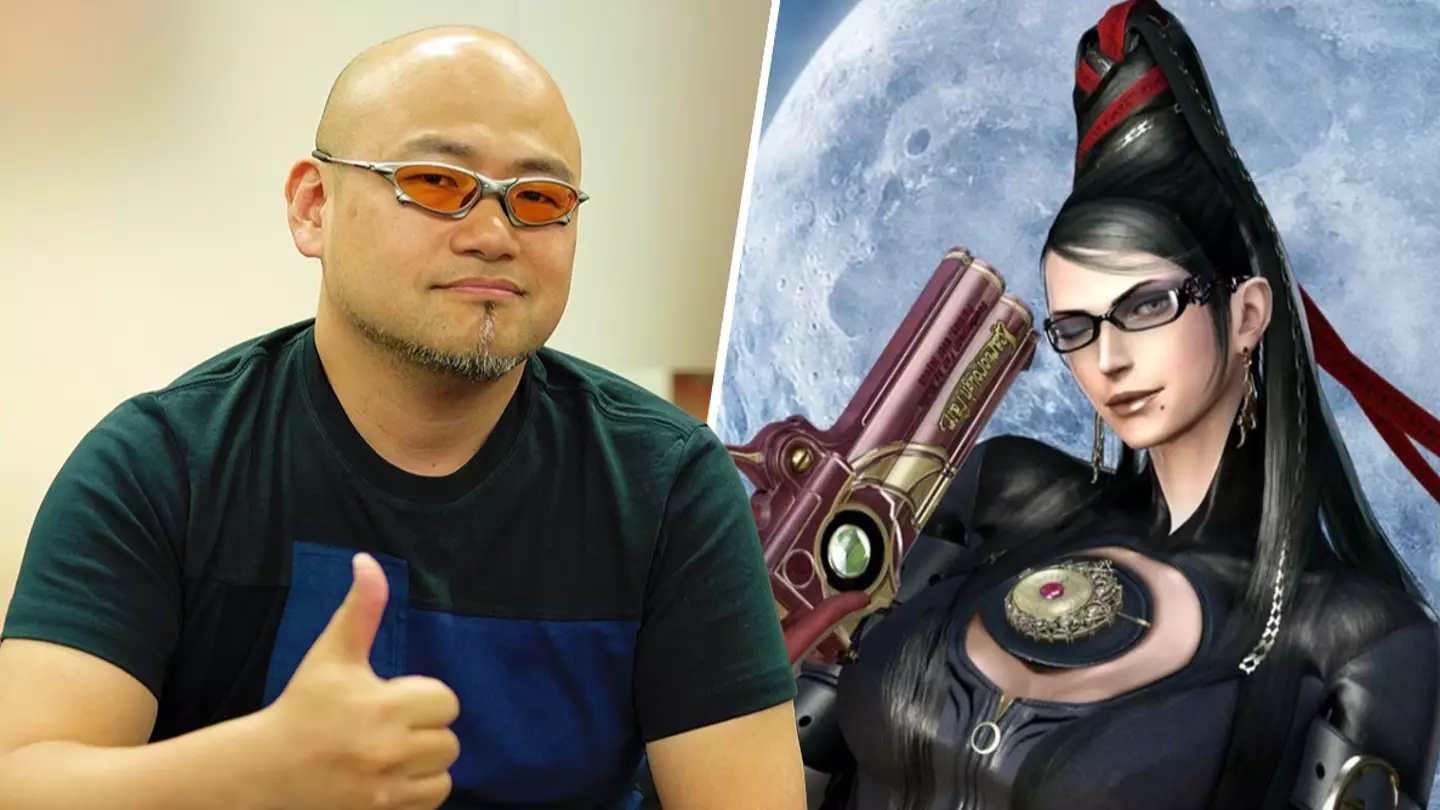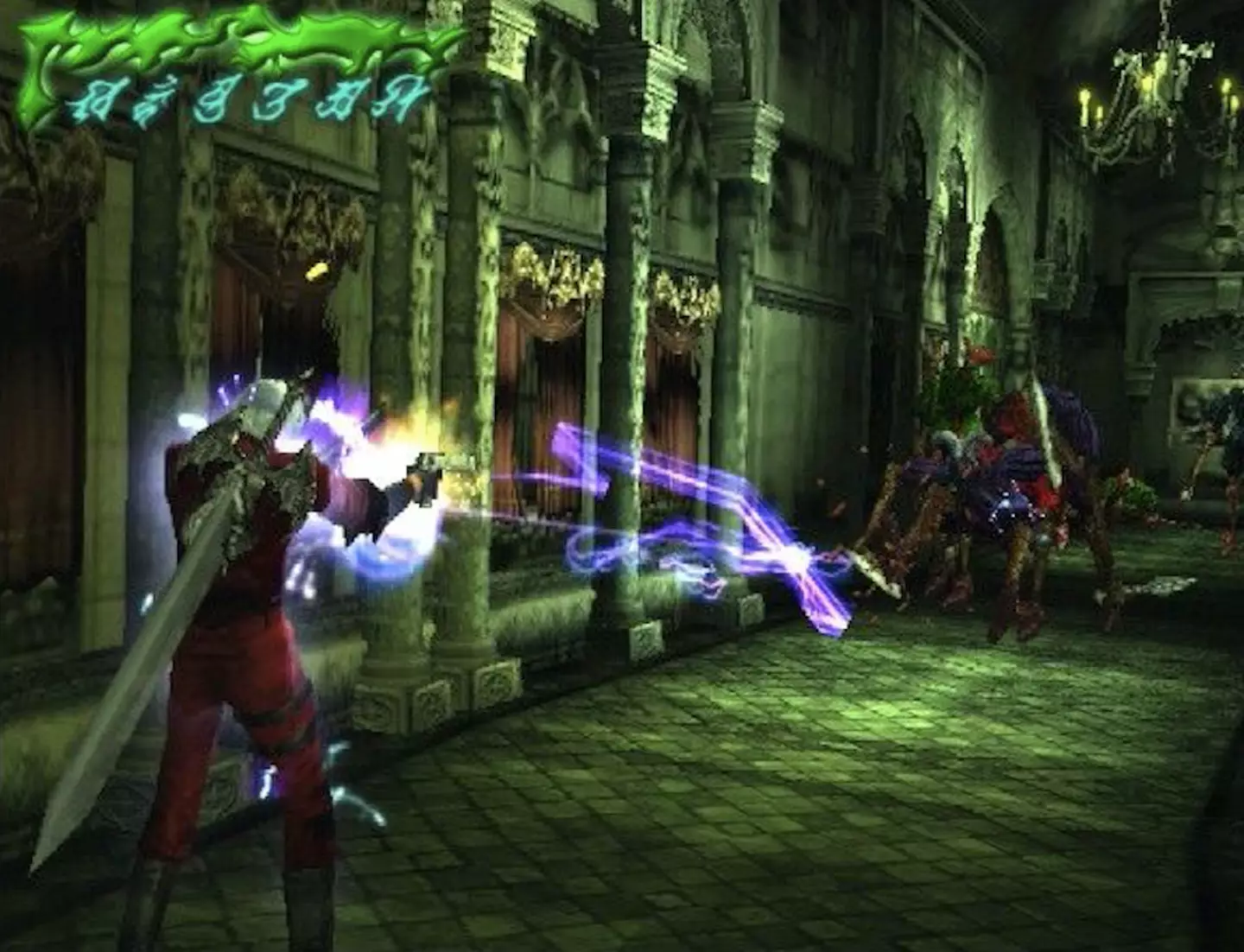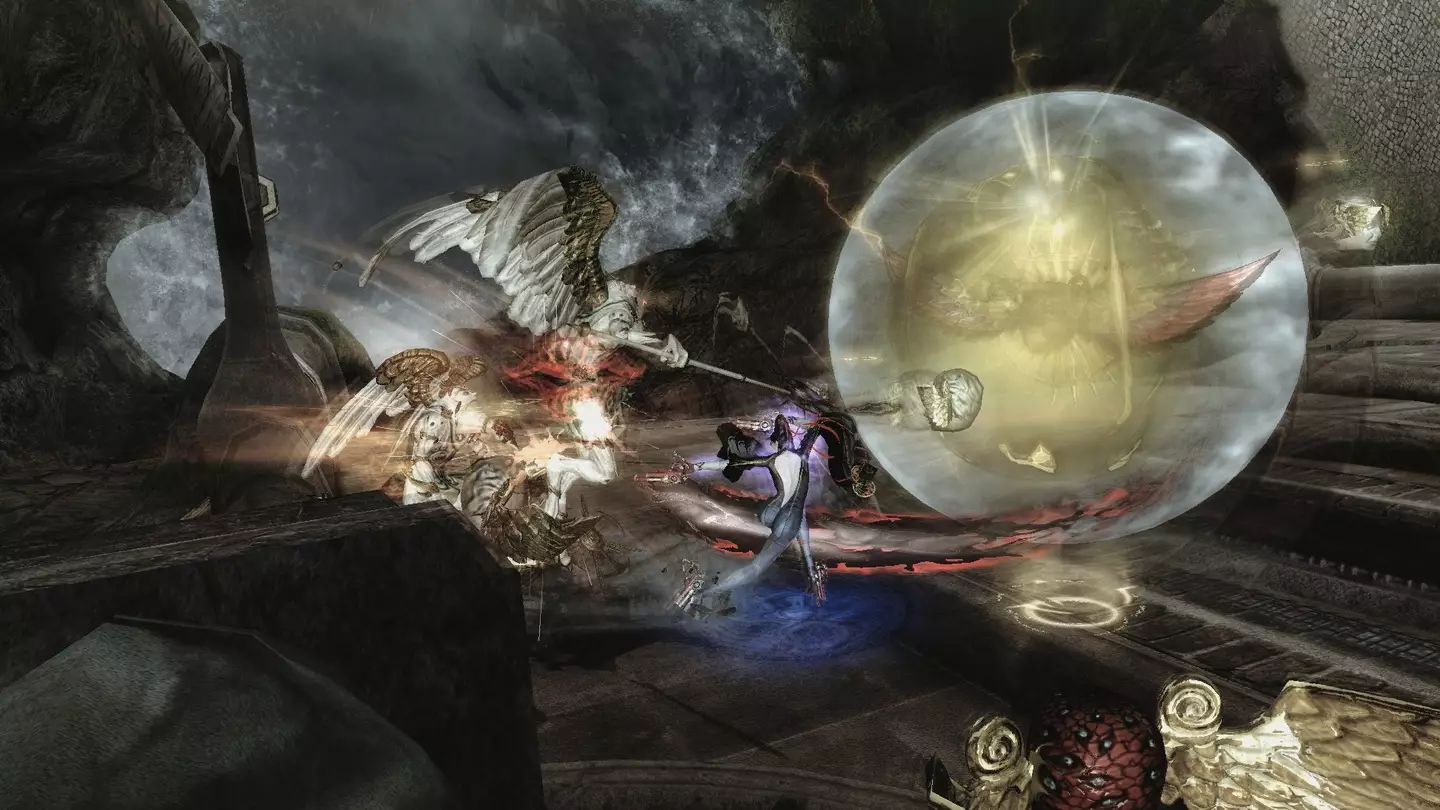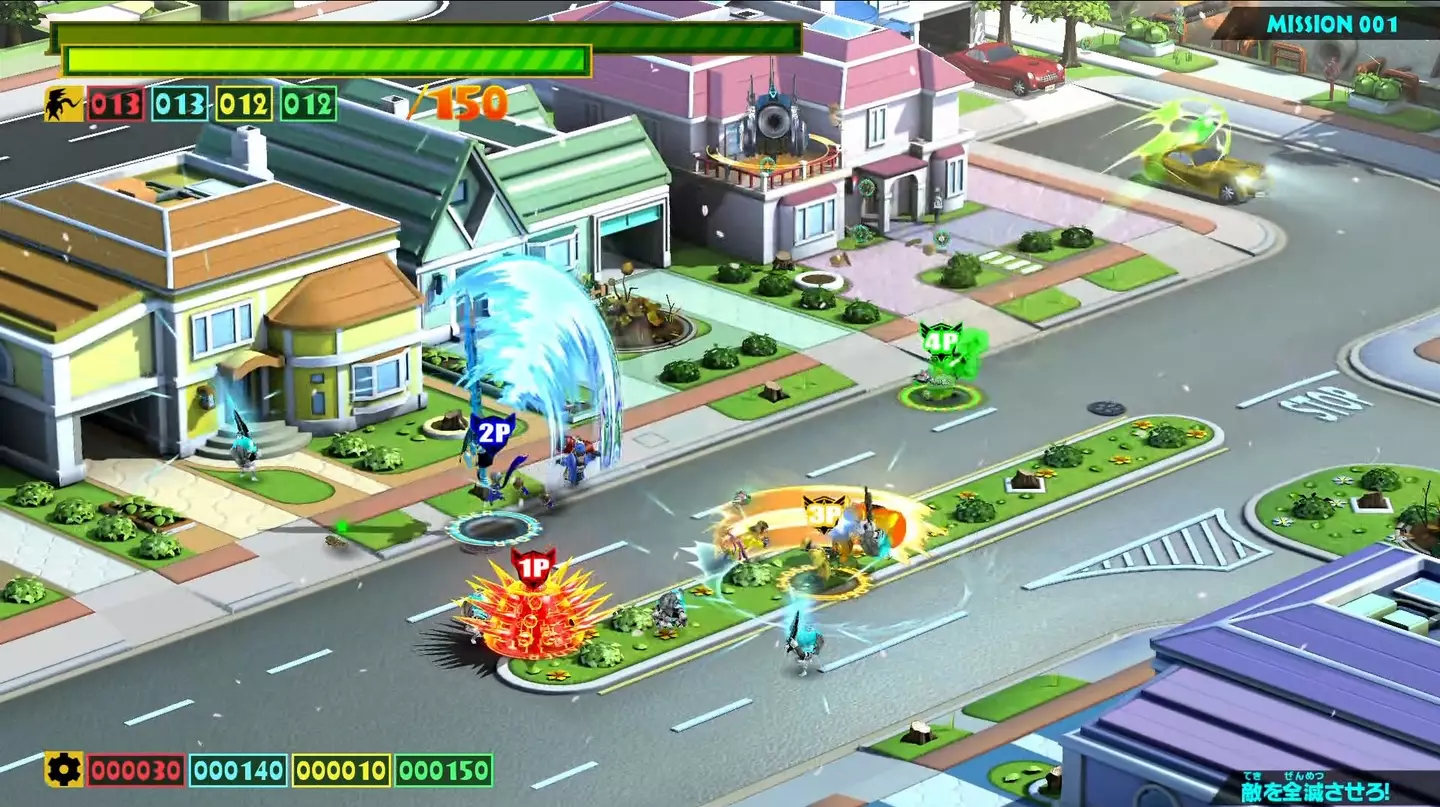
PlatinumGames co-founder Hideki Kamiya is a man of two distinct reputations. His social media presence is fiery, to say the least, and he wields his block button on Twitter with tremendous abandon. His pinned tweet outlines what he simply won’t stand for: “no advice, no repeat questions, no asking about games which are not mine,” and much more. He adds: “If u break rules, that means u r brainless insect and will be blocked immediately. BE CAREFUL,” and that “MY BLOCK BUTTON IS BIGGER THAN EVER.” I mean, it’s a personality, for sure.
But Kamiya isn’t all about words on the internet, as his actions - or rather, the action of the games he’s worked on across a 25-year career, speak far louder than any social media fury. Since cutting his teeth as system planner on Capcom’s iconic Resident Evil of 1996, Kamiya’s collected gameography reads like a who’s who of the higher echelon of bone-breaking, slow-mo-dodging interactive entertainment. He directed Devil May Cry in 2001, Viewtiful Joe in 2003, Bayonetta in 2009, and The Wonderful 101 in 2013. And that’s just scratching the surface of a CV that screams: we just do it better at PlatinumGames.
The first full trailer for Bayonetta 3 was revealed in September 2021 - check it out below
Not that Kamiya’s career began with PlatinumGames - his current studio was only founded in late 2007, alongside Atsushi Inaba, Resident Evil creator Shinji Mikami, and Tatsuya Minami. All four co-founders had history with Capcom, with Inaba and Kamiya having been a part of its internal Clover Studio team, responsible for some truly exceptional games in the ‘00s: the side-scrolling beat ‘em up Viewtiful Joe and is sequel (and handheld spin-offs); the gorgeous open-world adventure of mystical magic that is Okami (you can read about that delight, here); and the slapstick oddity that is God Hand, a funnies-inflected fighting title where everything is turned up to 11, famously awarded an against-the-grain 3/10 review by IGN. Some you win, some you whinge about on the internet.
Advert
Kamiya didn’t have a direct hand in everything Clover put out - though Viewtiful Joe and Okami are very much his games, as he directed them both - but before then he’d already been responsible for some Capcom classics. As Mikami moved to producer for 1998’s Resident Evil 2, Kamiya stepped up to direct the survival horror sequel. Of the second Resident Evil, Kamiya told Japanese magazine The PlayStation: “We scrapped everything we had done and went completely back to the drawing board.” The team was already working on a follow-up to 1996’s breakthrough, a version that came to be called Biohazard 1.5; but this was abandoned for what would be the Raccoon City-set second game proper. “To be sure, there was also a lot of excitement from everyone when we learned we were redoing it,” Kamiya explained, adding that the team thought: “This time we’re going to get it right!”

The next game Kamiya directed left slow and steady pacing behind, the player afraid of what’s around each corner, for something altogether more frenzied. Devil May Cry is rightly regarded as an action essential, a foundational hack ‘n’ slash of supreme quality, which still plays as slickly today as it did on its release for PlayStation 2 in 2001. The game began development as a Resident Evil title before becoming its own thing, and launching its own franchise. Kamiya said that he “couldn’t resist to make it showy,” and that he made the game with “die-hard action gamers” in mind.
The frenetic, testing gameplay of Devil May Cry, all decisive blows and last-gasp dodges in the three-dimensional space, would be refined and evolved over later Kamiya-directed productions and other titles where he served in a significant role, from 2009’s Bayonetta to 2019’s Astral Chain (our review, here). Throughout, Kamiya’s games have always had that certain something that’s hard to truly put a finger on, a quality that marks them as, well, just better than most of their action genre competitors. It’s music, it’s the aesthetic, it’s the level design and the plotlines - but it’s attitude, more than anything else. Kamiya knows Kamiya, and what he wants in a Kamiya game. Which is to say, outside influence is rarely appreciated.

Speaking to 1up in 2006, Kamiya recounted how he’d reacted to some feedback to Viewtiful Joe: “We brought in some kids to a focus test and asked them, ‘What do you think of the characters?’ And all the kids said, ‘Oh, his head's too big,’ or ‘Silvia's annoying, I just want to kill her.’ They were just trashing the game, so I just got pissed off and said I'm not changing anything.” More recently, Kamiya has expressed displeasure at speculation surrounding the development of Bayonetta 3 - now confirmed for a 2022 release. In July 2021, he called remarks about its delay “annoying public waste,” and responding to player questions about the game’s potential to become multi-platform, bearing in mind it’s being published by Nintendo, he said (via Nintendo Life):
Advert
“Just like with Bayonetta 2, we’re developing Bayonetta 3 with funding from Nintendo… So feel free to send your requests of ‘release the game on other consoles’ to Nintendo... I guess the likelihood of Bayonetta 2 and 3 coming to PS5 and Xbox isn’t impossible – it’s Nintendo’s decision. By that same logic, it’s not impossible that games like Mario and Zelda could show up on PS5 or whatever. So good luck sending passionate pleas to Nintendo and trying to get that to happen… If I were you, I’d simply buy a Switch.”

Hideki Kamiya can sound spiky, somewhat confrontational, in quotes like that - and anyone who only knows him for his soundbites and tweets may well assume he’s a prickly customer in real life. I’ve only met him once, at an E3 some years ago, and that really wasn't the case at all. He was in LA promoting Scalebound, a PlatinumGames project which was intended as an Xbox exclusive before its cancellation in early 2017. He was clearly excited at trying a game that didn’t fit the (at that point) traditional PlatinumGames action mould, a formula perfected through the likes of MadWorld, Vanquish, Bayonetta and Metal Gear Rising: Revengeance - and a formula subsequently simplified for less-successful licensed games for the Teenage Mutant Ninja Turtles and Transformers.
Despite the huge gameplay shift, there was one thing that carried over from those older titles, into Scalebound: “We want the player to be rewarded for doing cool stuff,” Kamiya told me. And really, isn’t that Kamiya games, encapsulated? Do cool stuff, feel cool doing it, get something cool as a result. A platinum trophy at a stage’s end, or an S rank for dispatching the latest wave of nasties. With PlatinumGames’ Project G.G. and Bayonetta 3 incoming, both with Kamiya in directorial positions, players can be assured of way more cool action, real soon.
Advert
This piece is part of a series briefly profiling influential game creators, true masters of style, and their key works. Read previous entries: Fumito Ueda (Shadow of the Colossus), Amy Hennig (Uncharted).
---
This editorial content is supported by Philips OneBlade. Philips is committed to providing products that fit into every individual's life, to suit every personality's idea of style. Every one of us is unique, and every one of us feels comfortable and confident in different ways - and the flexibility of Philips OneBlade ensures that anyone can express themselves in a way that's all about them. Find more information here.
Featured Image Credit: PlatinumGames, SEGA